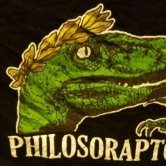“Church father Hippolytus of Rome (170 – 235 AD) rendered it this way several centuries ago when he wrote: ‘….the word of Isaiah, I, the Lord, make peace, and create evil; meaning by that, I maintain peace, and permit war.'” (J. H. MacMahon (translator) “On Psalm LXXVII” in The Refutation of All Heresies by Hippolytus, Edinburgh: T & T Clark, 1868, p429)
“He gave them up … that is, he permitted them to rush by their own will, or as impelled by the devil: for this signification of permission is extremely frequent in the Hebrew verbs …” (Philip Melanchthon, as quoted in The Dark Side of Things: An Exposition in The Evangelical Repository: A Quarterly Magazine of Theological Literature, Vol. 1 Glasgow: Lang, Adamson, 1863, p100)
Note that, while the reference above is quoted form a source published in 1863, it is attributed to Melanchthon, an associate of Martin Luther from hundreds of years earlier.
“When God is said to harden men’s hearts,-to deliver them up to a reprobate mind,-to send them strong delusions, that they should believe a lie, and the like;- it is infinitely far from being meant of an efficacious impulse in God Almighty. That all those verbs,- to harden, to blind, to deliver up, to send delusions, to deceive, and the like,-are by an ordinary Hebraism only permissive in signification, though active in sound, is placed without all controversy.” (Thomas Pierce, I, p23-24 edition of 1658 as quoted in Jackson, The Providence of God, p401)
“For pray, take notice, God is said in scripture to send what He can but doth not hinder from being sent.” (Edward Bird, Fate and Destiny, Inconsistent with Christianity: or, The Horrid Decree of Absolute and Unconditional Election and Reprobation Fully Detected, 1726)
(Note: they tended to have very long titles in those days.)
“… in the language of Scripture God is sometimes said to do what he only permits to take place under his moral government.” (Kendall, James, A Sermon, Delivered at the Ordination of Rev. Oliver Hayward, Samuel T. Armstrong, 1816, p7-8)
“In the language of scripture, natural consequences are sometimes spoken of as though they were pre-ordained and irrevocable decrees. What happens solely through the permission of the Almighty, in the ordinary course of his Providence, is described as though it had taken place through some special and irresistible intervention of his hand. This is a mode of writing peculiar to the Hebrew idiom; an idiom which prevails everywhere throughout the New Testament, as well as the Old. Thus, when the sacred writers represent God as “blinding the eyes of men that they should not see, and hardening their hearts that they should not understand;” their meaning generally is that he does not powerfully interfere to prevent those evils which are the natural fruits of our own folly, perverseness , and impenitence.” (John Goodge Foyster, Sermons; London: Ibotson and Palmer,
1826, p90)
Adam Clarke (~1761-1832) was a British Methodist theologian and Biblical scholar who spent 40 years writing a commentary on the entire Bible following the Wesleyan-Arminian traditions of interpretation. The work included 6 volumes of about 1,000 pages each. His commentary can be accessed at www.studylight.org/commentaries
/acc.html. The quotes below are from his commentary The Holy Bible Containing the Old and New Testaments; New York: J. Emory and B. Waugh, 1831.
“All those who have read the Scriptures with care and attention, know well that God is frequently represented in them as doing what he only permits to be done. So because a man has grieved his Spirit and resisted his grace he withdraws that Spirit and grace from him, and thus he becomes bold and presumptuous in sin.
Pharaoh made his own heart stubborn against God, Exodus 9:34; and God gave him up to judicial blindness, so that he rushed on stubbornly to his own destruction.” (Adam Clarke, Commentary on Exo 4:21, 1831)
“By withdrawing the Divine protection the idolatrous Israelites were delivered up into the hands of their enemies, from whom the gods in whom they had trusted could not deliver them.” (Adam Clarke, Commentary on Exo 20:5, 1831)
“He hath permitted, or suffered, a lying spirit to influence thy prophets. It is requisite again to remind the reader, that the Scriptures repeatedly represent God as doing what, in the course of his providence, he only permits or suffers to be done. Nothing can be done in heaven , in earth, or hell, but either by his immediate energy or permission.” (Adam Clarke, Commentary on 1 Kings 22:23, 1831)
“This passage evidently implies, that it was in the power of these nations, by accepting peace, to escape extermination; but that they were permitted to harden their hearts against all the wonders of divine Providence, in behalf of the Jews, and by this obstinacy exposed to suffer the full weight of that punishment which their crimes deserved, and which God had denounced against them. All who are conversant in the language of the Old Testament know, that it speaks of every event which God permits, as proceeding directly from him; and describes his as hardening the hearts of those who abuse the divine dispensations.” (Richard Graves, Lectures on the Four Last Books of the Pentateuch, Dublin: William Curry, Jun, and Company, 1831 p194)
The quote above is from a commentary on this verse:
“For it was of the LORD to harden their hearts, that they should come against Israel in battle, that he might destroy them utterly, and that they might have no favour, but that he might destroy them, as the LORD commanded Moses.” (Josh 11:20)
“But when Pharaoh saw that there was respite, he hardened his heart, as the Lord had said. Exod. viii. 15; and chap. ix. 34. He sinned yet more, and hardened his heart. God purposed not to interpose by his mollifying grace, and, in the idiom of the eastern language, employed in the Bible, and which, when viewed under established rules of fair interpretation, cannot be easily misunderstood, is therefore said to harden the tyrant’s heart. The purpose of God was not to prevent it.” (Alexander M’Leod, The American Christian Expositor: Designed to Promote the Influence of Sound Principles and Social Order, Volume 1 (New York: H. C. Sleight, 1831, p458)
“We find in the 45th chapter of Isaiah, that the Lord determined to raise up Cyrus to be the instrument of restoring the Jews from their captivity in Babylon; and though it was nearly two hundred years before Cyrus was born, he addressed him, as though he were present, and called him by name. The religion of his native country contained the belief, that there were two co-eternal Beings, the one the author of all good; the other the author of all evil: and that these were continually opposing each other. These absurd opinions, according to Lowth and Scott on the passage, were the special reason why Jehovah should have spoken of himself, at that time, in the following manner: “I am the Lord, and there is none else; there is no God beside me. I form the light; I create darkness; I make peace; I create evil; I the Lord do all these things.†That Jehovah is the direct source of all good no one disputes. When he is said to create evil, we may understand that it is agreeable to the Hebrew language, in which the Old Testament was written, to ascribe directly to God, that which he permits to be done. Thus we often read of the Lord’s hardening the heart, which may mean simply, that he permits sinners to go on in their own chosen ways.” (The Independence of God Vindicated in The Evangelical Magazine, Volume 2, Hartford: Peter R. Gleason & Co., 1834, p309)
“According to the idiom of the Scripture language, words of an active signification are often used to express, not the doing of the thing said to be done, but the permission, or the prediction of it.” (David Russell, Letters, Practical and Consolatory: Designed to Illustrate the Nature and Tendency of the Gospel, Volume 1,
Philadelphia: W. Marshall & Co., 1836, p199-200)
“The 1st. Aorist Passive has generally a reflex sense, when intransitive almost always so. This is according to the Hebrew phraseology which attributes to God, the actions he permits to be done, “I make peace and I create evil—I the Lord do all these things (Isaiah xlv. 7.) Shall there be evil in a city and the Lord have not done it (Amos iii. 6) which can only be interpreted like the present of permissive agency.” (William Houghton, Calvinism Scripturally Examined, and Shewn to be Inconsistent with the Statements and Totally Opposed to the General Tenor of the Word of God; London: C. J. G. and F. Rivington, 1836, p37)
“God is often said to do that which he merely commands, causes, or permits to be done.” (George Bush, Notes, Critical and Practical, on the Book of Genesis, Volume 1; Chicago: B. C. Greigs & Co., 1838, p88)
“He ‘hardened Pharaoh’s heart:’ He ‘shuts the eyes of sinners, and makes their ears heavy, lest they see with their eyes and hear with their ears.’ … God, in righteous judgment gives the presumptuous sinner up to his own evil impulses, permitting him to ‘harden himself even under those means which he useth for the softening of others.’ Misapprehension of this idiom led many excellent men in New England, to profess without scruple or limitation, their belief, that unholy volitions were the immediate effect of divine agency.” (Alexander McClelland, Manual of Sacred Interpretation: For the Special Benefit of Junior Theological Students; New York: Robert Carter, 1842, p112-113)
“We are told, in the same verse, that the Spirit of God departed from Saul. This must mean that the Holy Spirit withdrew his influence, and, consequently, Saul lost the gifts, the ability for government, and managing the affairs of his kingdom, which had been imparted to him, when ‘the Spirit of God came upon him, and he became another man,’ 1 Sam. x. 6. Does it not follow from this, that the tempers which he afterwards manifested, were the effects of the influence of and evil spirit, opposite to the Spirit of God? And, as it came upon him in consequence of the withdrawment of the Divine Spirit, and by the permission of the Divine Being, and also as a judgment, it may, with the greatest propriety, and especially in the Hebrew idiom, according to which God is often said to do that which he permits to be done, and renders subservient to his purposes, be represented as from God. This is the natural interpretation of the passage, and that which best agrees with the general doctrine of the Bible respecting evil spirits.” (Walter Scott, The Existence of Evil Spirits Proved: and their Agency, Particularly in Relation to the Human Race, Explained and Illustrated, Jackson and Walford, 1843, p94-95)
“Everywhere in scripture God is said to do what He permits whether good or bad and especially if the thing done be uncommon and out of the ordinary course of things.” (Richard A. F. Barrett, A Synopsis of Criticism upon those Passages of the Old Testament in Which Modern Commentators have Differed, 1847)
Below is a comment on a verse similar to Isaiah 45:7:
“The LORD hath made all things for himself: yea, even the wicked for the day of evil.” (Pro 16:4) “Wicked they are of themselves. He made them not so. He compels them not to be so. He abhors their
wickedness. But he foresaw their evil. He permitted it, and thou ‘he hath no pleasure in their death,’ he will be glorified in them in the day of evil,’ as the monuments of his power, his justice, and his long-suffering. Clearly therefore God is not the Author of sin. He cannot impart what he has [not] … He can decree nothing but good. If he permits evil, so far as not to hinder it, he hates it as evil, and permits it only for the greater good.” (Charles Bridge An Exposition of the Book of Proverbs, Volume 1, New York, Robert Carter, 1847, p199)
“In Isaiah, God says, ‘I create evil.’ At the same time we know, from the whole tenor of Holy Writ, that God is not the author of evil. Yet Isaiah’s expression is correct and idiomatic. Whatever is done by an agent, is said to be done by the power restraining and directing that agent. In like manner, it is usual in Scripture to attribute to the Supreme Power, acts which are virtually those of his instruments, and which he merely permits, in order to overrule and evolve good from them. There are diversities of agents at work, but one God; and there are differences of administrations, but the same Lord. All acts are primarily those of God, from whom all powers and permission of acting proceed; secondarily, those of his agents.” (Charles Edward Fraser-Tytler, New View of the Apocalypse: or, The Plagues of Egypt and of Europe Identical; Edinburgh: Johnstone and Hunter, 1852, p66)
“Nobody that knows anything about Hebrew idioms wants to be told that the Hebrew writers frequently speak of a person’s doing a thing, or appointing a thing, which he only permits or does not prevent.” (T.O. Summers,
The Theological Works of Thomas Paine in The Quarterly Review of the Methodist Episcopal Church, South, Volume 8 Richmond, VA: Stevenson and Owen, 1854, p501)
“It is then so common in Holy Scripture to speak of God as actually doing that which He simply permits, and does not absolutely hinder men from doing, that this may be justly regarded as an idiom of eastern speech.” (Thomas Jackson, The Providence of God, Viewed in the Light of Holy Scripture, London: John Mason, 1862, p304)
“… this authority our Saviour expresses according to a well-known idiom of the Jews’ language. It is no wonder, then, that God is said to do that which He permitted men to do, when they had by their sins provoked Him to withdraw from them the restraints of His providence and grace. Inattention to Scripture forms of expression is one of the most fruitful sources of theological error.” (Ibid, p300-301)
“But how does God ‘create evil’? By a special exercise of power, such as he put forth when he created the world? Or is he said to cause, to create, that which comes to pass in the regular course of his providence, and which he puts forth no special effort to prevent? It is in this latter sense, undoubtedly, that God is sometimes said in the Scriptures to harden the hearts of men, and to create evil. Pursuing the courses they do, men’s hearts become hard under the providence of God, and nothing but a miracle could prevent it. Another phraseology, however, is very often used in the Bible, implying a sufierance of evil, a permission of it, rather than a direct causation. “Who in times past sufiered all nations to walk in their own way†(Acts xiv. 16). “I gave them up to their own hearts’ lusts†(Ps. lxxxi. 12). He “gave them over to a reprobate mind†(Rom. i. 28).” (Enoch Pond, Lectures on Christian Theology; Boston: Congregational Board of Education, 1867, p343)
“It can scarcely be necessary to insist that such expressions as represent God as the author of evil, the most remarkable of which is perhaps found in Isaiah—“I make peace, and create evilâ€â€” must be understood in the sense either of permission or of punishment.” (H. L. Dox, The Power of Darkness; The Lutheran Quarterly, Volume 8; Gettysburg: J. A. Wible Printer, 1878, p574)
“Those that drive the good Spirit away from them do of course become a prey to the evil Spirit. If God and His grace do not rule us, sin and Satan will have possession of us. The devil, by the divine permission, troubled and terrified Saul by means of the corrupt humours of his body and passions of his mind.†(Ralph Fenwick, “David Playing Before Saul†in The Primitive Methodist Magazine for the Year of Our Lord, 1880.VOL.III, London: Ralph Fenwick,1880, p585)
“That is, in the course of my providence I will permit this to be done. Such phrases in Scripture do not mean that God either does or can do evil himself; but only that he permits such evil to be done as he foresaw would be done, and which, had he pleased, he might have prevented.” (Treasury of Scriptural Knowledge by Canne, Browne, Blayney, Scott, and others about 1880, with introduction by R. A. Torrey.)
“Our translators have not only made mistakes in what affects men, but in what regards the honour of God, in making him the author of sin in wicked men, that he might find occasion to destroy them.” (John Hale Murray, A Help for English Readers to Understand Mistranslated Passages in Our Bible; London: S. W. Partridge & Co., 1881, p133)
“Predictions of evils that God permits, but does not desire, are often expressed in the language of command; this circumstance simply indicates that such results of human depravity will not be prevented.” (Charles F. Schaeffer, Annotations on the Gospel According to St Matthew: Matthew XVI-XXVIII. Part II, New York: Scribner & Sons, 1895, p206)
“The verb there is permissive, not causative. Dr. Robert Young in his Hebrew Concordance of the Scriptures agrees with me in that interpretation. I said it years before the Concordance appeared. As a matter of satisfaction, I am glad that a scholar has agreed to hat which I declared years ago … The last clause is properly translated in the permissive sense: ‘I will permit to be put upon thee none of the diseases which I have permitted to be put upon the Egyptians: for I am the Lord that healeth thee.'” (John Alexander Dowie, Leaves of Healing, volume 8, Zion Publishing House, Chicago, IL, 1901, p362)
The quote above is from a commentary on Exodus 15:26, KJV:
“And said, If thou wilt diligently hearken to the voice of the LORD thy God, and wilt do that which is right in his sight, and wilt give ear to his commandments, and keep all his statutes, I will put none of these diseases upon
thee, which I have brought upon the Egyptians: for I am the LORD that healeth thee.” (Exo 15:26)
“Active verbs were used by the Hebrews to express, not the doing of the thing, but the permission of the thing which the agent is said to do.” (E. W. Bullinger, Figures of Speech Used in the Bible, Grand Rapids, MI: Baker Book House, 1968, 2008, p823)
Note that Bullinger is often considered to have been one of the foremost authorities on Biblical figures of speech.
“All this (the Spirit departing from Saul) happened by the permission of God rather than as a result of his direct will, for God cannot be the author of anything evil.†(Walter C. Kaiser Jr., (Old Testament scholar) Hard Sayings of the Bible, Downers Grove, IL: Intervarsity Press, 1996, p212)
“It is possible that some references to direct divine involvement in events may reflect a view of divine pancausality that was popular in the ancient Near East. In the deterministic idiom of the culture, actions that were simply permitted by God, mediated through agents, or accomplished through the laws of nature, can be attributed directly to God … In the context of such a worldview, it is possible and perhaps likely that references to Yahweh closing wombs (1 Sam. 1:6), creating handicapped babies (Exod. 4:11), giving Saul’s wives to David (2 Sam. 12:8), and the like, are an accommodation to the mindset of the culture … his involvement may be more indirect than the language of the text suggests, The situations described may reflect His permissive will, rather that his ideal or His moral will.” (David M. Howard and Michael A. Grisante. Giving the Sense: Understanding and Using Old Testament Historical Texts, Grand Rapids, MI: Kregel Publications, 2003, p58)





